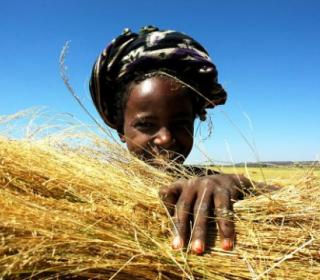Welthunger-Index 2014: Herausforderung verborgener Hunger
Ein Jahr bevor die Frist zur Erreichung der Millenniums-Entwicklungsziele im Jahr 2015 abläuft, bietet der Welthunger-Index (WHI) einen facettenreichen Überblick über die Verbreitung des Hungers und trägt neue Erkenntnisse darüber in die weltweite Debatte, wie Hunger und Mangelernährung verringert werden können. Betrachtet man die Entwicklungsländer als Gruppe, so hat sich die Hungersituation dort seit 1990 verbessert. Dem WHI 2014 zufolge ist seitdem ein Rückgang um 39 Prozent zu verzeichnen.




